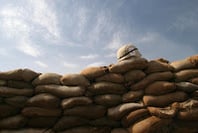President Obama’s BRAIN Initiative, announced in April, should develop new research tools and...
Blast-Related Traumatic Brain Injury May Persist
 |
|
Brian Upton/Shutterstock
|
They performed diffusion tensor imaging (DTI)—a type of magnetic resonance imaging—on 63 U.S. male military personnel who were evacuated from the field to the Landstuhl Regional Medical Center in Germany within 90 days after a blast-related TBI diagnosis and on 21 control subjects. Abnormalities revealed on DTI were consistent with traumatic axonal injury in many of the subjects with TBI. None had detectable intracranial injury on computed tomography.
For more on how civilians will benefit from the military's experience in treating brain trauma, see Psychiatric News at http://pn.psychiatryonline.org/content/46/6/6.1.full.





